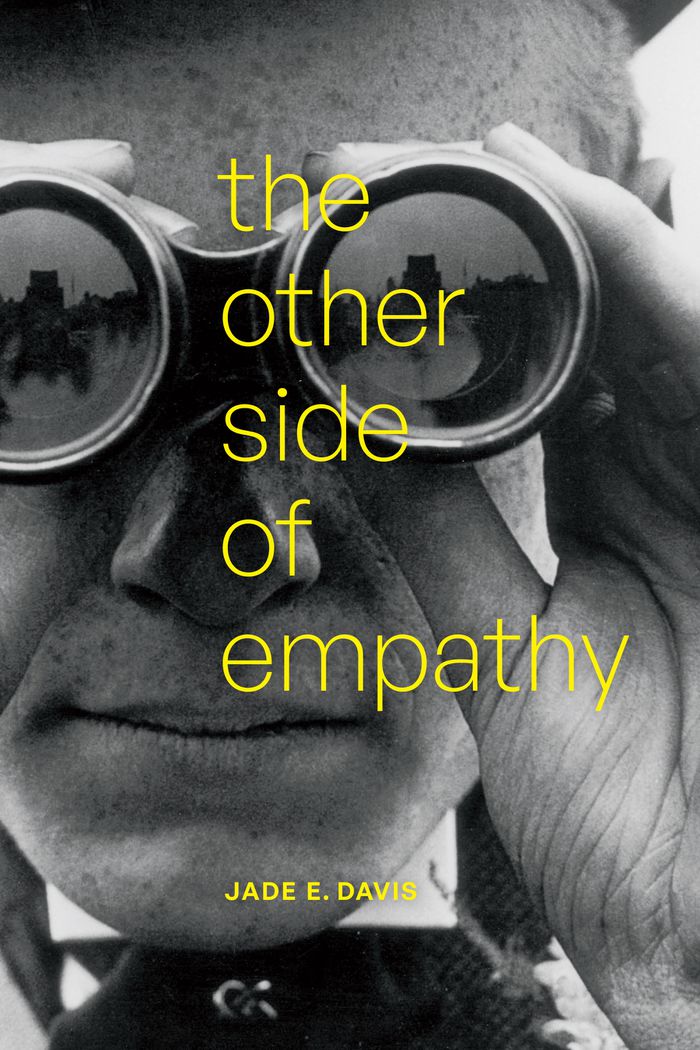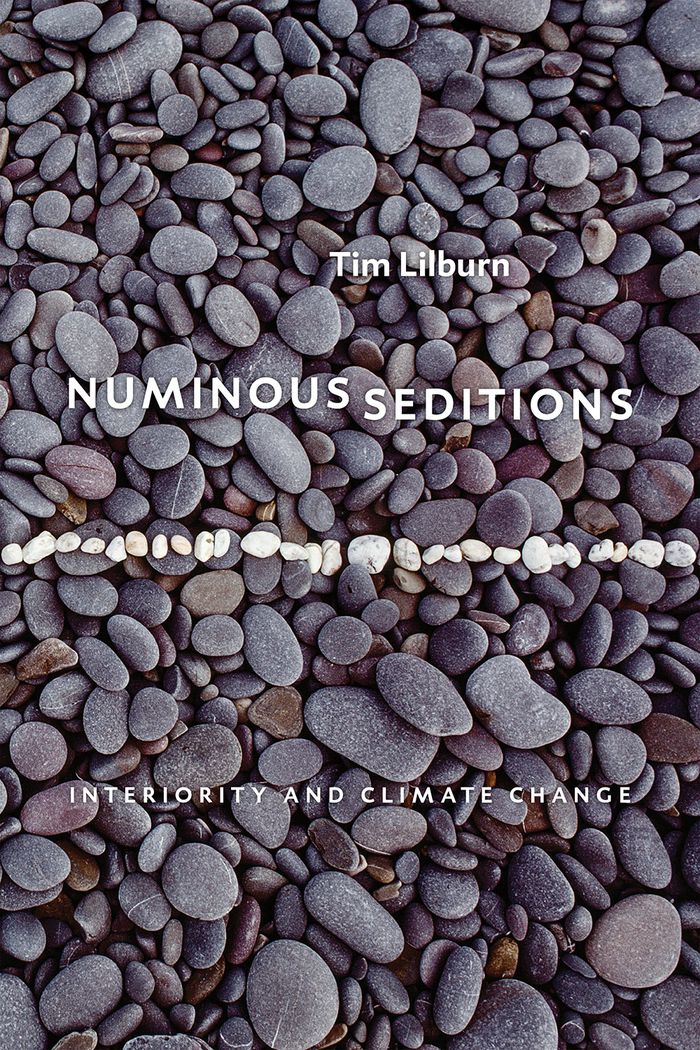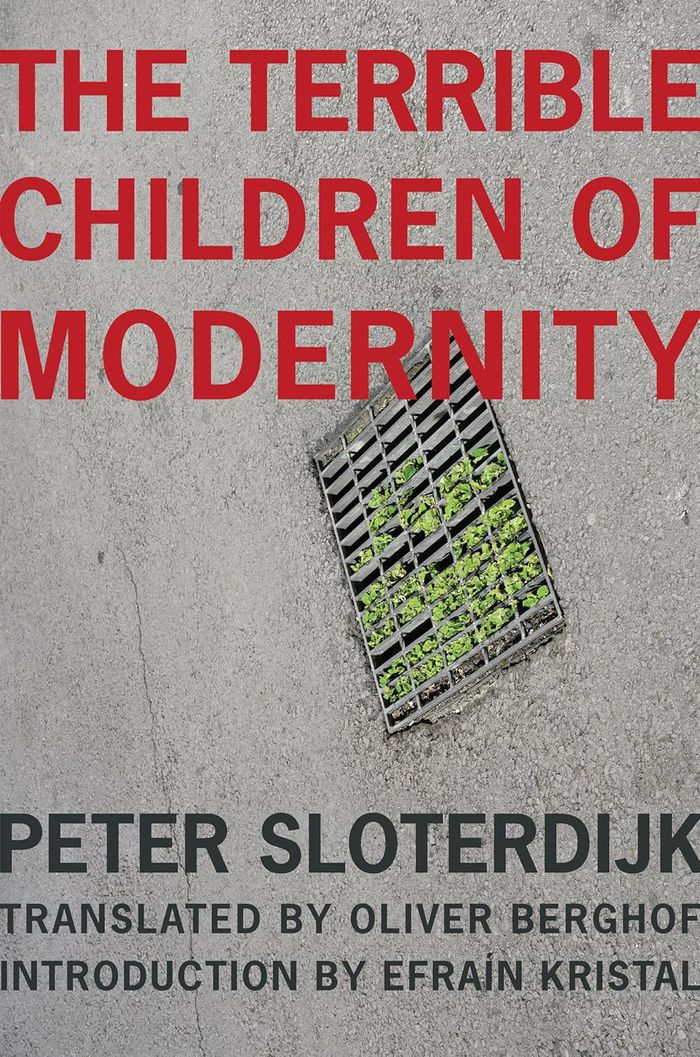The other side of empathy
$31.95
(disponible sur commande)
Résumé:
In The Other Side of Empathy, Jade E. Davis contests the value of empathy as an affective or critical tool. Whether focusing on technology, colonialism, or racism, she shows how empathy can obscure relationships of dominance, control, submission, and victimization, arguing that these histories taint the whole concept of empathy. Drawing on digital archives of photographs,(...)
The other side of empathy
Actions:
Prix:
$31.95
(disponible sur commande)
Résumé:
In The Other Side of Empathy, Jade E. Davis contests the value of empathy as an affective or critical tool. Whether focusing on technology, colonialism, or racism, she shows how empathy can obscure relationships of dominance, control, submission, and victimization, arguing that these histories taint the whole concept of empathy. Drawing on digital archives of photographs, memoirs, newspapers, interviews, and advertisements regarding nineteenth-century ethnographic museums and human zoos, Davis shows how empathetic responses erase culpabilities from those institutions that commodify difference. She also contends that empathy’s mediation through digital technology cannot lead to more ethical actions, as technology only connects representations of people rather than the people themselves. In empathy’s place, Davis proposes mutual recognition as a way to see and experience others beyond colonial modes of empathy. Davis illustrates that moving beyond empathy allows for a more nuanced understanding of the colonial past and its ongoing impact while providing for a more meaningful affective engagement with the world.
Théorie/ philosophie
$37.99
(disponible en magasin)
Résumé:
In "The effluent eye," Rosemary J. Jolly argues for the decolonization of human rights, attributing their failure not simply to state and institutional malfeasance but to the very concept of human rights as anthropocentric-and, therefore, fatally shortsighted. In an engaging mix of literary and cultural criticism, Indigenous and Black critique, and substantive forays into(...)
The effluent eye: Narratives for decolonial right-making
Actions:
Prix:
$37.99
(disponible en magasin)
Résumé:
In "The effluent eye," Rosemary J. Jolly argues for the decolonization of human rights, attributing their failure not simply to state and institutional malfeasance but to the very concept of human rights as anthropocentric-and, therefore, fatally shortsighted. In an engaging mix of literary and cultural criticism, Indigenous and Black critique, and substantive forays into the medical humanities, Jolly proposes right-making in the demise of human rights. Using what she calls an "effluent eye," Jolly draws on "Fifth Wave" structural public health to confront the concept of human rights-one of the most powerful and widely entrenched liberal ideas. She builds on Indigenous sovereignty work from authors such as Robin Wall Kimmerer, Leanne Betasamosake Simpson, and Mark Rifkin as well as the littoral development in Black studies from Christine Sharpe, Saidiya Hartman, and Tiffany Lethabo King to engage decolonial thinking on a range of urgent topics such as pandemic history and grief; gender-based violence and sexual assault; and the connections between colonial capitalism and substance abuse, the Anthropocene, and climate change. Combining witnessed experience with an array of decolonial texts, Jolly argues for an effluent form of reading that begins with the understanding that the granting of "rights" to individuals is meaningless in a world compromised by pollution, poverty, and successive pandemics.
Théorie/ philosophie
$29.99
(disponible sur commande)
Résumé:
With ''Numinous seditions'', celebrated poet and essayist Tim Lilburn investigates inner dispositions that might help us bear the new sorrows of the climate crisis. The book draws from the West’s almost forgotten contemplative tradition in its Platonic, Islamic, Christian, and Zoharic forms. It also explores ideas from modern philosophers Jan Zwicky, Gillian Rose, Dorothy(...)
Numinous seditions: Interiority and climate change
Actions:
Prix:
$29.99
(disponible sur commande)
Résumé:
With ''Numinous seditions'', celebrated poet and essayist Tim Lilburn investigates inner dispositions that might help us bear the new sorrows of the climate crisis. The book draws from the West’s almost forgotten contemplative tradition in its Platonic, Islamic, Christian, and Zoharic forms. It also explores ideas from modern philosophers Jan Zwicky, Gillian Rose, Dorothy Day, and Simone Weil, and from contemporary poets Don Domanski, Philip Kevin Paul, Anne Szumigalski, and Roberto Harrison. Lilburn suggests that listening, noticing, reading, and stretching our imaginations are all part of an interior stance that can assist with the difficult tasks of forming deep relationships with the land, with Indigenous peoples, and with pedagogy itself. Numinous Seditions is for scholars and readers interested in poetry, environmental philosophy, and in the possibility of a contemplative politics.
Théorie/ philosophie
$42.00
(disponible sur commande)
Résumé:
In ''The Terrible Children of Modernity'', Sloterdijk offers a magisterial and profound investigation into the vicissitudes of historical change and the nature of modernity. For Sloterdijk, modernity is defined by its need to break with the past. Moderns are perpetual rebels who seek to sever the ties of tradition and forms of inheritance that bind generations and eras(...)
The terrible children of modernity
Actions:
Prix:
$42.00
(disponible sur commande)
Résumé:
In ''The Terrible Children of Modernity'', Sloterdijk offers a magisterial and profound investigation into the vicissitudes of historical change and the nature of modernity. For Sloterdijk, modernity is defined by its need to break with the past. Moderns are perpetual rebels who seek to sever the ties of tradition and forms of inheritance that bind generations and eras together. With deep philosophical, historical, and literary range, he traces this antigenealogical experiment from the French Revolution onward, from Madame de Pompadour and Napoleon through Nietzsche, Marx, Wagner, the Dadaists, and Deleuze. Acutely aware of the destructive potential of cultural discontinuities, Sloterdijk is no less critical of the “fathers” who condemn change than the “terrible children” who seek a drastic rupture with their predecessors. Equally concerned with the grand sweep of history and our current predicaments, he instead calls for new ways to live together in the intersubjectivity of the human condition. Incisive and daring, breathtaking in its scope, this account of youthful rebellion against tradition asks us to reimagine the ethics of genealogy.
Théorie/ philosophie
$39.95
(disponible sur commande)
Résumé:
In this contribution to contemporary media studies, acclaimed theorist Francesco Casetti advances a provocative hypothesis: instead of being prostheses that expand or extend our perceptions, modern screen-based media are in fact apparatuses that shelter and protect us from exposure to the world. Rather than bringing us closer to external reality, dominant forms of visual(...)
Screening fears: On protective media
Actions:
Prix:
$39.95
(disponible sur commande)
Résumé:
In this contribution to contemporary media studies, acclaimed theorist Francesco Casetti advances a provocative hypothesis: instead of being prostheses that expand or extend our perceptions, modern screen-based media are in fact apparatuses that shelter and protect us from exposure to the world. Rather than bringing us closer to external reality, dominant forms of visual media function as barriers or enclosures that defend against the apparent threats and dangers that seem increasingly to surround us. Working with an original historical overview that begins with the Phantasmagoria of the late eighteenth century, then the shared interior spaces of the movie theater in the early to mid-twentieth century, and finally the solitary digital milieus of the present, Casetti traces the outlines of the protective 'bubbles' that disconnect us from our immediate surroundings. To be provided with a shield of immunity to the hazards and uncertainties of the world while experiencing them at a safe remove might seem a positive development. But, he asks, what if these media, instead of providing invulnerability, ensnare individuals in a suffocating enclosure? What if, in their effort to keep reality under control, they exercise a violence equal to that of the dangers they resist? In a dialectical exercise, and through a vivid range of cultural artifacts, ''Screening fears'' traces the emergence of modern protective media and the way they changed our forms of mediation with the world in which we live.
Théorie/ philosophie
$29.95
(disponible sur commande)
Résumé:
What can the senses of an attentive philosopher see, hear, and learn that can, in turn, teach us about living better lives? Perhaps it’s less a matter of asking what and more a matter of asking how. These latest reflections from Italy’s foremost philosopher form a sort of travelogue that chronicles Giorgio Agamben’s profound interior journey. Here, with unprecedented(...)
What I saw, heard, learned...
Actions:
Prix:
$29.95
(disponible sur commande)
Résumé:
What can the senses of an attentive philosopher see, hear, and learn that can, in turn, teach us about living better lives? Perhaps it’s less a matter of asking what and more a matter of asking how. These latest reflections from Italy’s foremost philosopher form a sort of travelogue that chronicles Giorgio Agamben’s profound interior journey. Here, with unprecedented immediacy, Agamben shares his final remarks, late-life observations, and reflections about his life that flashed before his eyes. What did he see in that brief flash? What did he stay faithful to? What remains of all those places, friends, and teachers?
Théorie/ philosophie
Aptitudes territoriales
$12.00
(disponible sur commande)
Résumé:
Ce qui frappe chez André Corboz (1928-2012), c'est l'incroyable variété des sujets et des genres, qui ne sont pas localisables à l'intérieure d'une discipline donnée. Trois qualités irriguent son oeuvre : la curiosité, le nomadisme disciplinaire et l'érudition, comme l'écrivaint Bernard Secchi. « L'idée fondamentale, c'est que toute intervention n'est pas possible,(...)
Aptitudes territoriales
Actions:
Prix:
$12.00
(disponible sur commande)
Résumé:
Ce qui frappe chez André Corboz (1928-2012), c'est l'incroyable variété des sujets et des genres, qui ne sont pas localisables à l'intérieure d'une discipline donnée. Trois qualités irriguent son oeuvre : la curiosité, le nomadisme disciplinaire et l'érudition, comme l'écrivaint Bernard Secchi. « L'idée fondamentale, c'est que toute intervention n'est pas possible, souhaitable ou admissible partout. (...) Mais cette idée, que l'on peut qualifier d'écologique au sens le plus large, a mis beaucoup de temps à émerger. (...) Adopter le point de vue du territoire suppose un postulat, ou du moins une prise de conscience : (...) intervenir sur le territoire, c'est intervenir sur quelque chose qui est déjà un produit, qui résulte déjà d'une longue série de processus, bref, qui est déjà humanisé. »
Théorie/ philosophie
$22.95
(disponible sur commande)
Résumé:
Plus célèbre pour ses motifs floraux que pour son engagement politique, William Morris (1834-1896) consacre pourtant une partie de sa vie à dénoncer les contradictions internes du capitalisme. À travers ses discours, ses utopies politiques ou sa pratique artistique, il alerte sur les effets destructeurs de l’industrialisme, tant écologiques que sociaux. Convaincu que(...)
William Morris et la vie belle et créatrice
Actions:
Prix:
$22.95
(disponible sur commande)
Résumé:
Plus célèbre pour ses motifs floraux que pour son engagement politique, William Morris (1834-1896) consacre pourtant une partie de sa vie à dénoncer les contradictions internes du capitalisme. À travers ses discours, ses utopies politiques ou sa pratique artistique, il alerte sur les effets destructeurs de l’industrialisme, tant écologiques que sociaux. Convaincu que la beauté donne sens à l’existence, il appelle à la convivialité, à l’épanouissement personnel et à l’émancipation collective, grâce à la réappropriation des activités créatrices. Florent Bussy nous montre que sa vision d’une société fondée sur le partage plutôt que la concurrence, l’égalité plutôt que la domination, la beauté plutôt que l’artifice, la qualité plutôt que le gaspillage est une source d’inspiration inestimable pour tout projet de transformation sociale radicale.
Théorie/ philosophie
$22.99
(disponible en magasin)
Résumé:
A bedroom, a kitchen, a bathroom - are these rooms all that make a home? Not at all, argues Emanuele Coccia. The buildings we inhabit are of immense psychological and cultural significance. They play a decisive role in human flourishing and, for hundreds of years, their walls and walkways, windows and doorways have guided our relationships with others and with ourselves.(...)
Philosophy of the home: Domestic space and happiness
Actions:
Prix:
$22.99
(disponible en magasin)
Résumé:
A bedroom, a kitchen, a bathroom - are these rooms all that make a home? Not at all, argues Emanuele Coccia. The buildings we inhabit are of immense psychological and cultural significance. They play a decisive role in human flourishing and, for hundreds of years, their walls and walkways, windows and doorways have guided our relationships with others and with ourselves. They reflect and reinforce social inequalities; they allow us to celebrate and cherish those we love. They are the places of return that allow us to venture out into the world. In this intimate, elegantly argued account, Coccia shows how the architecture of home has shaped, and continues to shape, our psyches and our societies, before then masterfully leading us towards a more creative, ecological way of dwelling in the world.
Théorie/ philosophie
$22.95
(disponible sur commande)
Résumé:
Économie, écologie, territoires : Pierre Veltz poursuit et actualise dans cet essai son exploration de notre monde turbulent, mariant une approche fine des univers techniques et une vision socioéconomique de grande ampleur. Le sujet qui va dominer les décennies à venir est celui de la crise écologique, mais les récits du futur sont extrêmement divergents. Partant de ce(...)
Bifurcations: Réinventer la société industrielle par l'écologie ?
Actions:
Prix:
$22.95
(disponible sur commande)
Résumé:
Économie, écologie, territoires : Pierre Veltz poursuit et actualise dans cet essai son exploration de notre monde turbulent, mariant une approche fine des univers techniques et une vision socioéconomique de grande ampleur. Le sujet qui va dominer les décennies à venir est celui de la crise écologique, mais les récits du futur sont extrêmement divergents. Partant de ce constat, l’ouvrage esquisse nos avenirs possibles, autour d’une question centrale qui est celle du devenir de l’industrie. Entre ceux qui prônent le microlocalisme et ceux qui pensent géopolitique, entre ceux qui rêvent de permaculture généralisée et ceux qui ne voient le salut que dans la high-tech, les lignes de fracture sont profondes. Où allons-nous, où voulons-nous aller ensemble?
Théorie/ philosophie









